Kajō Onoe
Рождение : 1898-08-31, Kobe, Hyogo Prefecture, Japan
Смерть : 1969-03-02

Pinku from 1965.
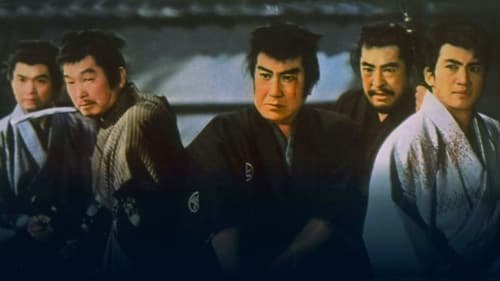
The story of five easygoing Yakuza who come together to save the live of a young innocent girl, Oichi, from an evil vassal.
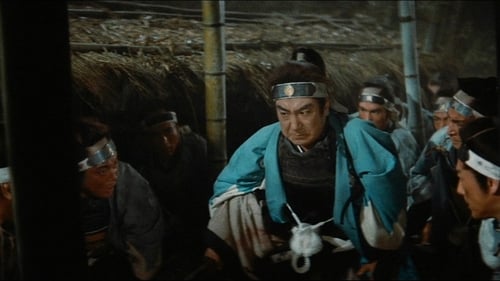
Megastar Kataoka Chiezo is Vice-commander Hijikata Toshizo of the Shinsengumi in this realistic tale of Japan’s inner battles that led to the downfall of the Tokugawa shogunate. Excellent performances and extremely good swordplay highlight this glimpse into the heart and soul of Japanese history. Although known as “Razor Blade” Hijikata, the vice-commander is a man of deep conviction with a little-known sense of humanity. Starting after the famed Ikedaya Incident, in which they saved Kyoto from Choshu’s plot to burn the city to ashes, they work hard to change the public’s view of them as merciless killers to their true mission of protecting the shogun. This is an extraordinary tale of blood and guts! From the pen of award winning author Shotaro Ikenami (Bandit Vs. Samurai, Hunter in the Dark, Misumi's The Last Samurai)

Magistrate Kinshiro fights with a group of villains plotting the assassination of the Shogun in Edo.
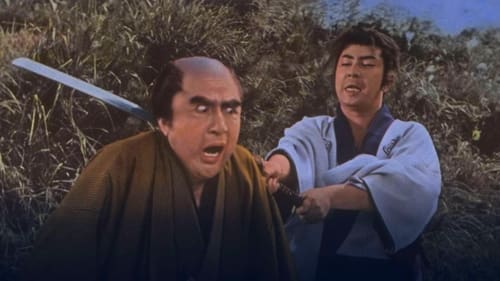
Tattooist
From the opening theme song to the grand finale, you know that you have found something special as this exciting movie stars the great Misora Hibari in one of her most memorable performances as she plays Shintaro and Oharu, a brother and sister, the children of a lumber dealer who had been murdered by the evil boss Kumagoro who plots to take over Shintaro's family business with the help of a corrupt deputy who has fooled the family into believing that he is on their side.
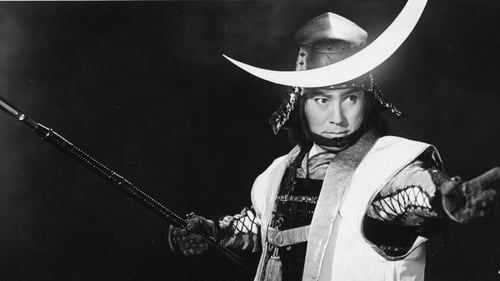
This subversive period film features a hotheaded young samurai, Kurodo, who threatens to commit harakiri in response to the humiliation meted out to his family by the Shogun. The film critiques the inhumanity of feudal obligations, and Uchida’s direction slyly satirizes the contemporary cinematic audience, whose taste for onscreen bloodshed is mirrored in a crowd gathering to watch the protagonist’s planned suicide. The Master Spearman is imbued with Uchida’s characteristic blend of dark humor and stylized action, and Ryutaro Otomo gives an admirable performance in the lead.

Kinnosuke of Toyama sets out on a private mission to clear his father’s name for a crime he did not commit.

While on the road, famed Yakuza Boss Jirocho is falsely accused of starting a peasant's uprising and chased by the law. Meanwhile, one of his henchmen in an attempt to raise money for the Boss gambles away not only all their funds, but their clothing as well. Jirocho, famed for his honesty and integrity must take on the challenge of rival gangs while trying to elude the government's officials at the same time. Things really heat up when the most famous of all Yakuza Bosses, Chuji of Kunisada gets involved. Will he team up with his old friend or is gang warfare about to erupt?
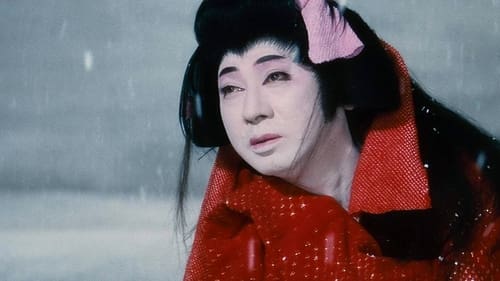
Nakamura Yukinojo gains popularity in Edo's kabuki scene as a handsome onnagata (a male actor who plays female roles). But hidden behind the placid expression of his stage face is a deep grudge for the men responsible for dishonoring his parents' names and leading them to suicide when he was still a child. When he discovers that the mastermind behind those crimes has come to see him act onstage, he begins in earnest to plot his revenge. With the help of a renowned Robin Hood-like thief named Yamitaro, he makes out his first target: the daughter of the man who orchestrated his parents' demise.
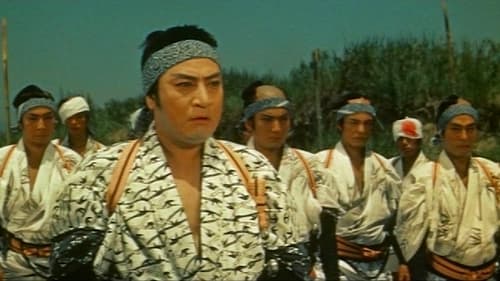
One of the great stories from Japan’s rich history comes to life in this true tale of the bloody showdown between two rival yakuza gangs in the 1840’s. The battle between Boss Sukegoro of Iioka and Boss Shigezo of Sasagawa has been portrayed many times, most notably in the first Zatoichi film, where the blind man befriends the tubercular ronin Hirate Miki, before cutting him down in one of the great duels in cinema history. This all-star extravaganza pulls out all the stops, with appearances by virtually all of the great actors and actresses from Toei’s studio at the time. Ichikawa Utaemon’s portrayal of the kind-hearted, noble yakuza boss Shigezo of Sasagawa contrasts sharply with the devious Sukegoro of Iioka. Corrupt as he may have been, his men were all willing to give up their lives for him.


Light-hearted samurai comedy. The second son of a feudal lord runs away from an arranged marriage. He saves the life of a princess whom he gets to fall in love with. It turns out that she is just his prospective bride.

The conclusion of the story of famed swordsman, Sasaki Kojiro. After surviving a series of daring adventures, Kojiro seems to have finally discovered the ultimate happiness in life when he is reunited with Tone, the love of his life. However, his days of happiness are overshadowed by an upcoming duel with his fateful enemy Miyamoto Musashi.

Ronin Sasaki Kojiro pursues his ultimate goal of becoming a master swordsman. Along the way he encounters another great swordsman, Miyamoto Musashi.

This most celebrated all-star movie version of the popular series features Tsukigata Ryunosuke as Mito Komon, the sage who wanders the countryside rectifying government corruption along with his faithful attendants Suke and Kaku.
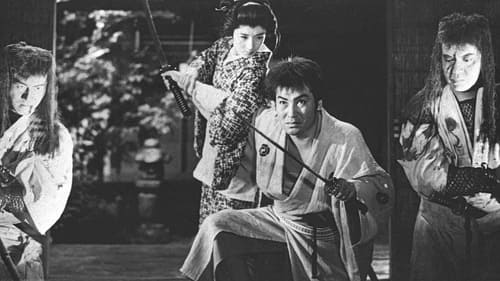
Revenge breeds revenge. Ikuta Denpachiro, the martial arts instructor of the Honda family in Koriyama, lost a fight to the young samurai Enjo Sozaemon in a martial arts tournament and as a result lost his position and was expelled from home. Wanting to avenge the mockery of himself, he treacherously kills Sozaemon and goes on the run. After long wanderings, Denpachiro, it would seem, finds a peaceful life and love in the face of a devoted and courageous Okatsu, but the brothers of the murdered man are already on his trail, wanting to avenge the death of Sozaemon. The film is based on a story by Itaro Yamagami.

During a time of war, Lord Ogata is betrayed by two of his closest vassals and killed by his enemy, Sarashina Danjo. Ten years later, Lord Ogata's only living heir, now a skilled ninja, uses sorcery to avenge the murders of his parents.
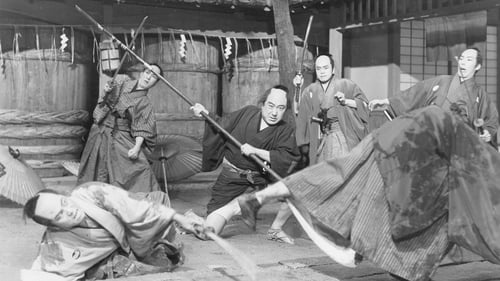
Молодой самурай, вместе с двумя своими слугами, совершает путешествие в Эдо. Длинная дорога, череда проносящихся образов — бездомный мальчик-сирота, странствующая танцовщица с дочерью, старик, собирающийся продать свою дочь, вор, орудующий на дороге, инспектор, разыскивющий его — хорошо прописанные, достоверные характеры, жизненные ситуации, полные чувства, временами печальные, временами смешные. Венчает все великолепный, полный драматизма и эмоционального накала, жестокий финал.

Сугимото пытается вести праздный образ жизни, хотя в послевоенной Японии устранили все привилегии знатных семей, и фамильный герб больше никого не защищает. Поэтому жители в глаза называют этого пьяницу именем Сёсукэ Охара.

Kumayoshi
Matsugoro is a poor rickshaw driver whose animated spirit and optimistic demeanor make him a favorite of the town. Matsu helps an injured boy, Toshio, and is hired by the boy's parents.

Знаменитый фехтовальщик Матаемон Араки должен встретиться со своим лучшим другом, поскольку они вынуждены принять противоположные стороны в кровной мести, вызванной убийством члена семьи.
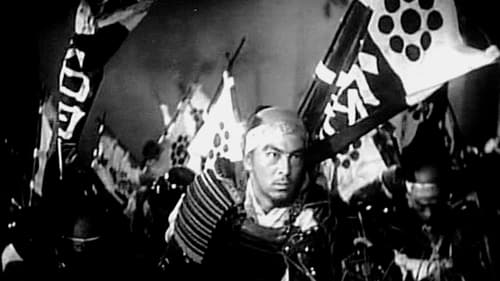
The life, adventures and exploits of warlord Date Masamune the One-eyed Dragon: his early youth as an aggressive warrior, the battles he won until subduing almost all his enemies, the lonely comprehension of knowing that he actually can not take over the whole country because he was born too late.

Katsutei, Shinzaburo's servant
Историческая драма, рассказывающая о попытках Кацу Кайсю бескровно сдать замок Эдо в первый год периода Мэйдзи.

There is an inn named Asano Ya in the port town, and a beautiful woman works there. Every year, during a local festival, travelling artists and teachers gather from all over the country, including sesame oil sellers and organ grinders. The day before the festival, trouble arises with some horses.

Early Japanese three-part samurai / fantasy serial.
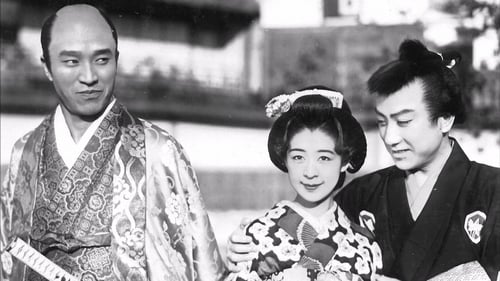
Roku-be of Dogu-ya (antique dealer)
An umbrella maker with a shopping addiction finds himself in dire straits when his debts force him to consider selling his attractive, desirable daughter to a suitor she doesn't love.

This is Kanjûrô Arashi's first film with Nikkatsu after his independent production company went bankrupt (many of these independent companies went bankrupt shortly after the transition to sound). As he is mostly famous for his portrait of Kurama tengu (and on the other hand, he's the definitive actor for Kurama Tengu as well), Nikkatsu made another version of Kurama tengu, co-directed by Masahiro Makino & Sadatsugu Matsuda who are both sons of Shozo Makino. Scripted by Yoshitake Hisa, a jidaigeki specialist who later scripted several Toei All-Star Jidaigeki.
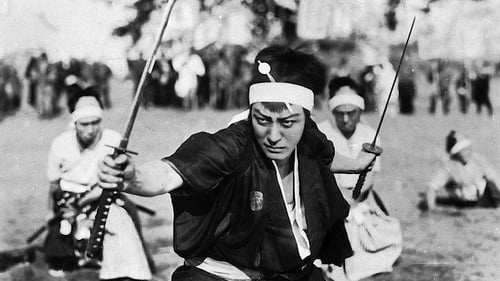
The tale of Nakayama Yasubei’s duel is famous, even if he in reality probably did not cut down 18 opponents. The story has been related in film, rakugo, kodan and on stage many times, in part because Nakayama later joined the famous 47 Ronin (Chushingura) as Horibe Yasubei. But Makino and Inagaki’s version gives no hint of this more serious future, playing up the thrills and the comedy with Bando’s bravura performance. The multiple pans of Yasubei running to the duel are an exemplar of the experimental flourishes of 1930s Japanese cinema and the final duel, performed virtually like a dance number, is a marker of Makino’s love of rhythm and one of the best sword fights in Japanese film history. The film was originally released under the title Chikemuri Takadanoba (Bloody Takadanobaba) with a length of 57 minutes, but suffered some cuts and a title change when it was re-released in 1952.

Based on the old tale of Jiraiya, this 1937 version is essentially a revenge story with fantastic visuals.

An adventurer and two accomplices unexpectedly invite themselves to a sword tournament and are offered a job with the lord who organized the competition.

Gantaro Path

This film tells the story of a ronin's search for his parents, but primarily is a group portrait of life in a Tokugawa-era tenement.

Directed by Kichiro Tsuji.

Этот комедийный фильм демонстрирует актерский талант Дендзиро Окоти и служит продолжением к фильму «Ядзи и Кита: Спасение Ясуда», который является частью сериала «Ядзи и Кита».

A samurai comes to the aid of his uncle in a duel.

Tsunesuke Maehara
Этот комедийный фильм демонстрирует комический талант Дэндзиро Окоти. Юмористический обмен мнениями с героем другого признанного актёра Горо Кавабэ, может быть бесценным, а выражения и движения двух глупых персонажей создают чистую, веселую комедию фарса. 15-минутный отрывок из фильма был выпущен на DVD компанией Digital Meme с аккомпанементом бенси Мидори Савато и Рюби Като.

The Japanese equivalent of penny dreadfuls glorifying Jesse James, A Diary of Chuji’s Travels gives a unique gloss to the tale of Chuji Kunisada, the legendary bakuto (or gambler, the precursors to modern-day yakuza). One of the two remaining segments of Ito’s original four-hour trilogy, it depicts Chuji’s attempt to save the geisha Oshina, a rebellion against the rigid social structure of Edo Japan. With socialist overtones, it’s a passionate artifact of early Japanese film.

Senta
A captivating operetta by Masahiro Makino based on Juppensha Ikku's humorous novel "Tōkaidōchū Hizakurige" starring Chiezo Kataoka and Kyoji Sugi.
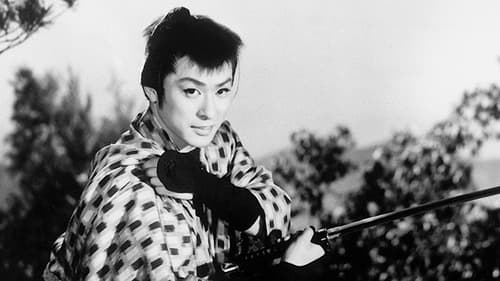
Hanjiro of Kusama searches for his little sister Oyuki, who went missing after being desecrated by Hikosaku Tokurai three years ago. The first film in a series about the adventures of the wandering yakuza Hanjiro from Kusama.































